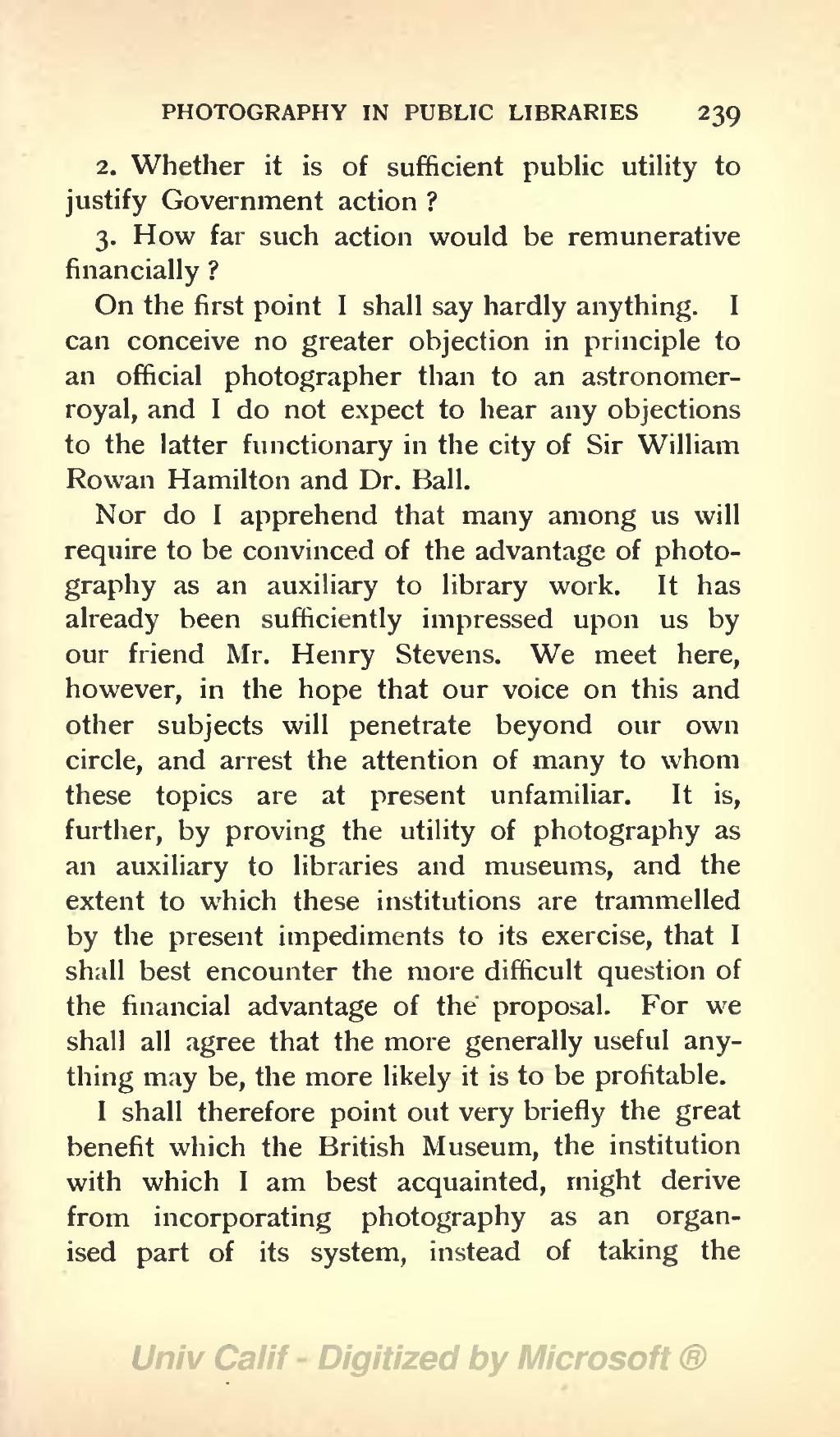2. Whether it is of sufficient public utility to justify Government action?
3. How far such action would be remunerative financially?
On the first point I shall say hardly anything. I can conceive no greater objection in principle to an official photographer than to an astronomer-royal, and I do not expect to hear any objections to the latter functionary in the city of Sir William Rowan Hamilton and Dr. Ball.
Nor do I apprehend that many among us will require to be convinced of the advantage of photography as an auxiliary to library work. It has already been sufficiently impressed upon us by our friend Mr. Henry Stevens. We meet here, however, in the hope that our voice on this and other subjects will penetrate beyond our own circle, and arrest the attention of many to whom these topics are at present unfamiliar. It is, further, by proving the utility of photography as an auxiliary to libraries and museums, and the extent to which these institutions are trammelled by the present impediments to its exercise, that I shall best encounter the more difficult question of the financial advantage of the proposal. For we shall all agree that the more generally useful anything may be, the more likely it is to be profitable.
I shall therefore point out very briefly the great benefit which the British Museum, the institution with which I am best acquainted, might derive from incorporating photography as an organised part of its system, instead of taking the

